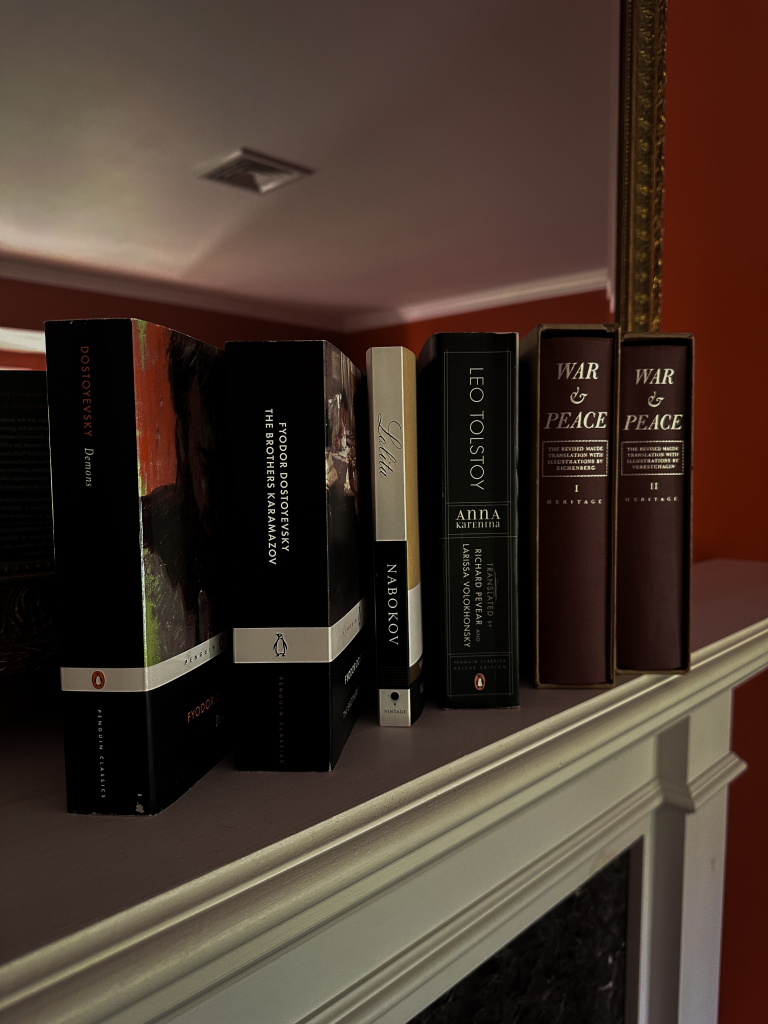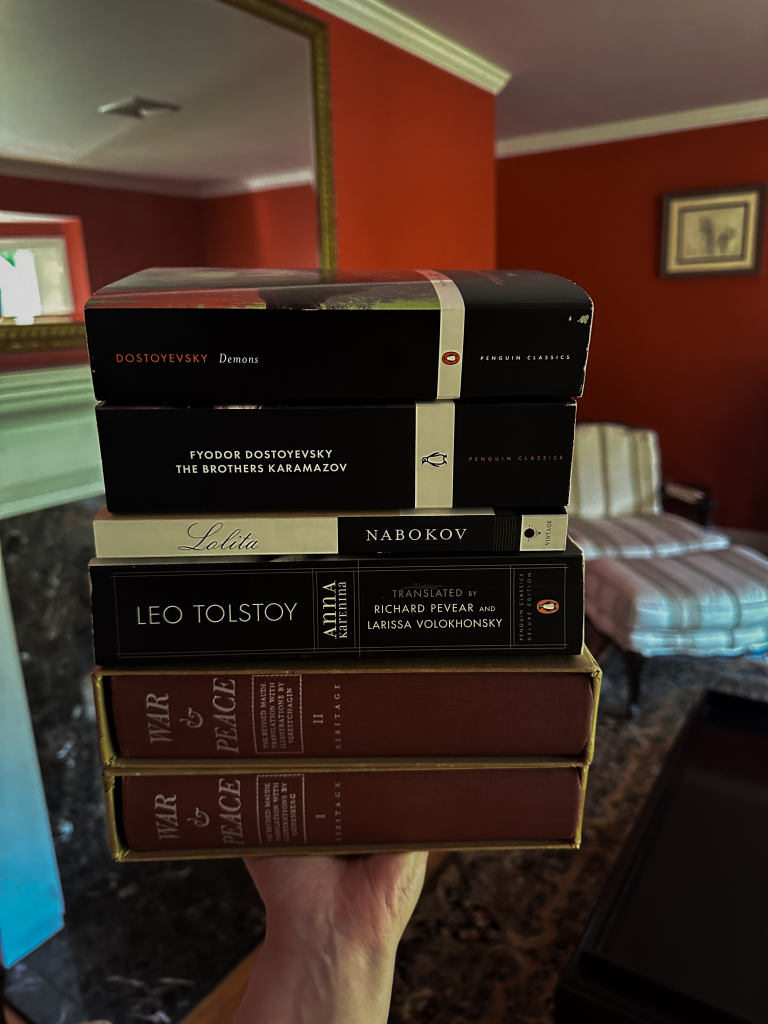This post/page may contain affiliate links. Please check out my privacy policy and disclosure policy.
Apparently Pedro Pascal is being cancelled online because it turns out that he loves Russian literature – authors like Fyodor Dostoevsky and Mikhail Bulgakov. I guess I need to be cancelled to because I also love Russian literature. And love Pedro just a bit more now, if that was even possible!
I cannot believe that this has to be said, but: LIKING A BOOK, OR AN AUTHOR, FROM A SPECIFIC COUNTRY DOES NOT MEAN YOU AGREE WITH THAT COUNTRY AND ITS GOVERNMENT.
I love some American authors, and dislike the American government. I love Russian authors, and dislike Putin. I love German authors, and am not a Nazi.
Liking literature from a specific country, especially a country that has negative news about it right now, does not mean that you support that country and it’s government.
The list could go on and on. And in case you have not noticed, a lot of authors from countries make political statements against their own governments in their books. Or critique the society that they live in.
You can also read a book that is connected to history and enjoy it while seeing the problems.
Books like War and Peace, and Anna Karenina, show the beauty of life that the rich got to enjoy and how opulent and stunning it was. And you can enjoy that for what it is. But you can also learn to hear what life was like for the poor during that time, to learn about the political and class divides. Enjoying a book does not mean you necessarily agree with it or believe what is in it. Same with other books that racial undertones – you can read it, enjoy the experience, but see the underlying issues and educate yourself.
Russian literature specifically, is rich in it’s descriptions, opulent in the scenes, emotionally complex, philosophically deep and just so layered.
When you critique authors just because of their ethnicity and background, you frankly sound uneducated and narrow minded.
For one example Dostoevsky himself wrote a letter in 1870 in response to another author, Ivan Turgenev, turning away at the last second when a man was executed. He wrote, “…но человек, на поверхности земной, не имеет права отвертываться и игнорировать то, что происходит на земле, и есть высшие нравственные причины на то.” This says “…but a person, on the surface of the earth, has no right to turn away and ignore what is happening on earth, and there are higher moral reasons for this.” (dostoevskiy-lit.ru).
I completely understand people struggling to read books from countries that are involved in conflict right now, but that is something you have to work through. This involves research, asking questions, and critical thinking. For Russia specifically, there is a great post by Ani Kokobobo that I recommend that you read if you are struggling to process how to read Russian literature during a time of the Russian-Ukraine conflict.
But making a blanket statement, or judging someone based on the ethnicity of an author that they like, is not the way to do it.
Now this is not to say that some Russian literature is very pro-Russia and parts of Russian history that aren’t great. And loving, or promoting, certain books absolutely may be a red flag. That would be like someone coming out and saying that they absolutely adore Mein Kampf or The Turner Diaries. Although, just because someone reads a book doesn’t mean they are pro or anti anything. Their opinion, statements, and other rhetoric around the specific piece of literature are key.
This rhetoric going around right now of the ‘other’ – anyone who is not you. Or the lumping of an entire society together as bad really needs to stop. Not every Russian is bad. Not every Israeli is bad. Not every Muslim is bad. Not every Palestinian is bad. Not every Christian is bad. Not every politician is bad. This lumping together is dangerous and the automatic assumption is just as dangerous, and really needs to stop. The jumping to conclusions when a lack of research is done needs to stop.

We need to do better as a society. In a time that is divided and divisive, in a time when critical thinking is clearly dying or struggling, we need to do better. Question peoples statements, have that moment of ‘wait, what does that mean?’, do some research, educate yourself, and then make and informed decision on a person. Especially if you literally know nothing about a topic, or have never read a book of that genre.
To end, here are a few interesting facts about Russian literature:
- Russian literature spans from the 10th century onwards
- Most books you know of that are famous came out during the 19th century, specifically during a 20 year time span of 1860-70s. All these books came out during the lifetime of Leo Tolstoy (1828-1910).
- According to Britannica, Russian literature “has as its defining characteristics an intense concern with philosophical problems, a constant self-consciousness about its relation to the cultures of the West, and a strong tendency toward formal innovation and defiance of received generic norms.”
I would recommend doing some research and learning specifically on Russian history and Russian literature and here are a few places to start:
- https://www.britannica.com/art/Russian-literature
- https://medium.com/@RationalBadger/why-read-russian-literature-af057f597f7a
- Also, pick up a Russian literature book and actually see what’s in it.